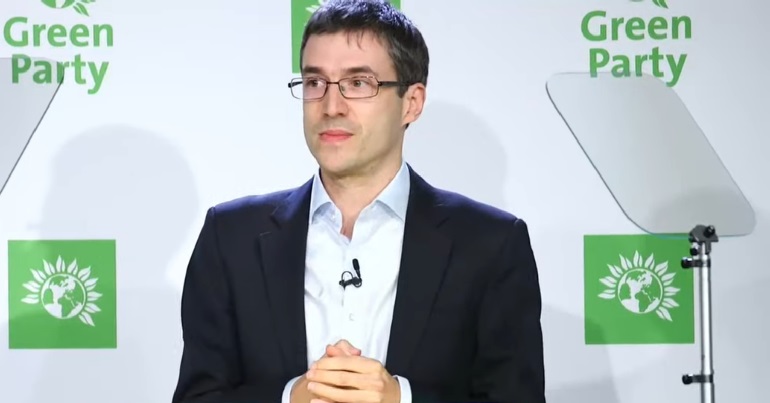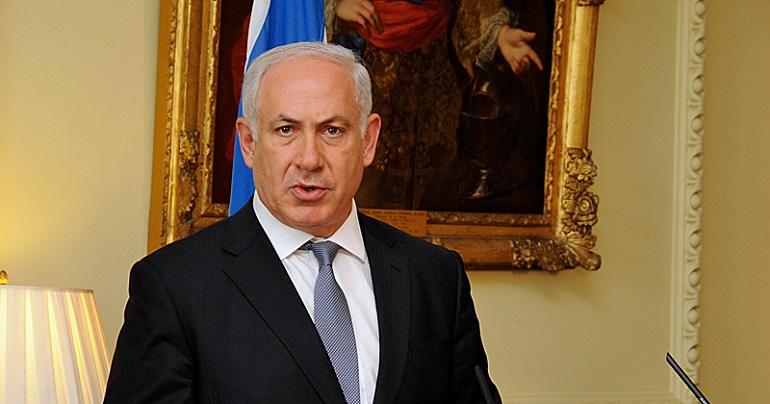The Coalition Axe on feed-in tariffs is a terrible mistake
In the two weeks since the Coalition announced it was going to slash feed-in tariffs (or FITs) in half there has been real consternation and anger. Feed-in tariffs exist to encourage the installation on new small-scale, low-carbon electricity technologies helping the UK move towards a new model of energy generation.
Climate change minister Greg Barker claims to be “a champion of decentralised energy” but in one stroke the scrapping of FITs has set us back years.
When challenged on the government’s position at a Friends of the Earth event last week he astonished onlookers by describing the tariff as “morally wrong” because the rate of return was higher than some other forms of investment.
It’s a funny kind of champion who finds it immoral to give incentives to behaviour you want and need to happen.
Barker claimed that the fast track review was necessary in order to prevent a “gold rush” of investors throwing everything into renewable energies. That doesn’t really sound like something a “champion” of such technologies would be against does it? Perish the thought that people might take up decentralised energy with unseemly haste.
The government announced new tariff rates at the same time as opening up a six week ‘consultation’ that ends eleven days *after* the new rates come into force. This does not indicate a government that is willing to listen to the industry, suppliers or consumers.
There are currently 4,000 solar businesses in the UK employing roughly 25,000 people. Over the last eighteen months the UK’s solar capacity grew six fold with the help of these tariffs but Barker is treating this welcome growth as a problem to be fixed. As Caroline Lucas argued “The truth is that solar has been too successful for the government’s liking – and this will certainly not be the last attempt to cut off its subsidies.”
This announcement has been conducted in the worst possible way. By making a snap reversal of FITs the hundreds of contracts and plans that have been worked on across the country have suddenly been thrown into flux. Across the country numerous projects have been jeopordised or scrapped in the last two weeks including extremely significant schemes.
In the London borough of Haringey an ambitious Labour project to roll out solar power across the poorest parts of the borough was due to be signed off the week of the announcement. At one stroke it would have doubled London’s solar capacity and is now in the wind because the council can no longer plan for a return on the energy produced. This is a real blow.
Adrian Ramsay, the Green Party’s deputy leader, said that “As always it is those on the lowest incomes who will suffer the most. This cut will jeopardise free solar schemes for people unable to afford the upfront costs of solar panels and is forcing councils to review schemes to install solar panels for council tenants and on other council buildings – schemes which, under the current FIT rate, were enabling local councils to generate a profit that can be invested in services that are under threat from government cuts.”
The knock on effect of damaging the reputation of renewable projects could be long lasting, effecting schemes like the Renewable Heat Incentive and damage the ability to borrow against future income renewable technologies provide.
Although Barker cites fuel poverty as one of the reasons for cutting the tariff the government admitted last month that the average cost to consumers of FITs amounts to just thirty pence each annually. This cut in a very small budget amounts to a false economy undermining energy security as well as moves towards a more environmentally sustainable economy.
Labour’s shadow climate change Minister Luciana Berger attacked the move saying that “Deposits have been lost on schemes that now they won’t be able to get back and there are people who will be out of work by Christmas because of this decision.”
It is of course worth going further than this. If this government wants to be seen as the greenest government ever then sinking ambitious community energy projects seems to be a strange way of going about it.




I don’t think the scheme did prevent access for those without capital, as lease schemes were available.
And, of course, it is entirely reasonable for those investing capital to make a return.
I’d say that an aggressive reduction (not *that* aggressive) is reasonable, as the cost of the installations have fallen by about 30-40% in 2 years, and of course the investment is competing with bank rates of almost zero.
It is necessary to maximise the amount of solar energy for the amount of subsidy, and to avoid bad/speculative/profiteering installations – which has been starting to happen.
To do otherwise is to be environmentally irresponsible. And – thoroughgoing capitalist as I am – I don’t believe that Greens would support that.
I’d also add some context to your 30p per household figure. That becomes different when you multiply it up from 100,000 to perhaps 5 million homes.
My reduction would perhaps have been a rapid 15% to blunt the boom, followed by another 15-16% next April when it was up for review anyway, to bring it down to about 30p.
“whether the feed-in tariff and indeed the domestic renewable heat incentive (if it ever arrives) are suitable mechanisms for encouraging renewables. They both require that you have access to capital for installation and are therefore of signficantly more benefit to middle-class households with either savings or high incomes than they are to low-income households that are far more likely to be in fuel poverty.”
…on this, watch for the provisions in DECC’s Green Deal consultation document. They place the cost of insulation measures onto the electricity / gas bill for the next 20 years. In the case of private tenants, that means we’ll be paying extra for a measure that will further boost the value of the landlord’s property.
When you hear the government justify nuking the FIT on the grounds of being a subsidy to the middle class, ask them about that.
Jim – I have a feeling that we 99% agree on this and that the discussion would be best continued over a pint sometime so I’m going to stop here.
But my point is that a decently sited initiative should make the money outlayed back within maybe seven years-ish. A poorly sited one will take a long long time to do so – so they don’t get financed.
The RHI point though is crucial – the industry now treats all government schemes as completely unreliable and we simply don’t know what will happen to RHI – so they are going to find it difficult to get financed.
At the end of the day its the government’s unwillingness to spend that’s the problem that leads a so called champion of decentralised energy to regard the success of FIT as a problem.
If this isn’t the plan to start retooling our energy grid what is?
Hi Jim – I didn’t express myself that well… the point I was making was that if even poorly sited schemes were capable of making money because the incentive was so high then something was wrong. There is an opportunity cost for householders as well. From an environmental point of view, would I rather they invested £10k on solar panels or on a heat pump? In terms of carbon savings (where I live at least) there’s no competition.
I accept the reduction will have resulted in some great schemes not going ahead, including the one at Haringay which sounds fantastic but I stand by my view that the reduction is correct but the way it’s been handled is terrible. Plus a decently supported rhi could very probably be of equal benefit to the people of Hackney and have a significantly greater environmental impact.
Hi Gordon,
I think it’s worth remembering that the feed-in tariff only pays out according to what is fed in – so if a solar scheme is poorly sited then there will be very little return on it, so these schemes have little impact on the fund which is capped at around £380 million (not got the number in front of me).
However for London this has, at a stroke, prevented a brilliant scheme by Haringey council that would have benefited the poorest parts of the borough and doubled the solar capacity of London. This is not the only council scheme to be sunk by this announcement and that is a real blow.
I think there are two different issues here which are worth separating out: one is the value of the FIT tariff for solar pv, the other is how DECC has handled it.
As far as the value itself is concerned, I’m glad it’s being reduced. I’ve seen too many solar pv schemes that frankly will do little in terms of carbon reduction for the amount they’ll be costing. It’s great that people are getting into renewables but when you see east or west facing roofs, or roofs that are at least partly shaded having solar pv fitted, there’s something wrong.
On the other hand, all the criticisms you’re making of the way it’s been handled are absolutely correct. DECC have handled this appallingly and everyone involved is right to be angry. From the outset, they should have put a limit on the level of installation nationally beyond which the FIT value would start to decrease. That way, it would have been predictable and the industry could have planned and been prepared for what is now happening.
It’s also worth mentioning that there’s a larger question about whether the feed-in tariff and indeed the domestic renewable heat incentive (if it ever arrives) are suitable mechanisms for encouraging renewables. They both require that you have access to capital for installation and are therefore of signficantly more benefit to middle-class households with either savings or high incomes than they are to low-income households that are far more likely to be in fuel poverty.